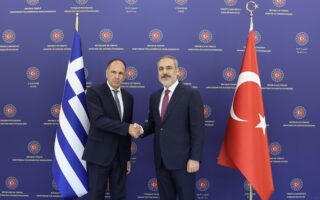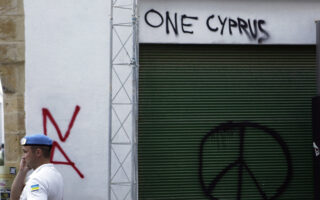A Greece-Turkey summit with results?
Both countries committed to productive January meeting, even though their agendas are far apart

Greece wants to keep relations with its difficult neighbor and nominal NATO ally Turkey as drama-free as possible in the run-up to the meeting of the bilateral Supreme Cooperation Council in Turkey toward the end of January.
In the meeting, Turkish President Recep Tayyip Erdogan and Greek Prime Minister Kyriakos Mitsotakis will determine whether it is possible for the two sides to negotiate the delimitation of maritime zones and the continental shelf or whether the matter will be referred to international arbitrage.
The difficulty in starting negotiations, or agreeing to arbitrage, is reflected in the different conceptions on what the agenda should be: While Greece insists the agenda should only include the maritime zones and the continental shelf, Turkey insists on bringing up on what Foreign Minister Hakan Fidan was the latest to invoke as “a totality of issues between us: maritime zones, airspace, the continental shelf, the minority issue, the problem of religion over there, the appointment of the mufti, the issue of education, both countries’ positions on Cyprus, Mediterranean- [and] Aegean-related issues.” Or, as another Turkish official put it, “Before you build the building, you must measure the plot.”
Turkish journalists contacted by Kathimerini in Ankara think that, its insistence on an expansive agenda notwithstanding, Turkey has the will to resolve its differences with Greece, to settle that contentious front. Currently, Turkey is more preoccupied with managing its relations with the United States, which it sees as too adversarial and not very good. The Turkish government, they say, has focused its attention on the result of the presidential election, on November 5.
Fidan and his Greek counterpart, George Gerapetritis, will meet in Athens on November 8, three days after the US presidential election. This will be their 15th meeting in the past 17 months; most of those meetings have taken part with no advisers present. The two are charged with preparing January’s summit. Diplomatic observers have commented that the preparation instructions given to the two ministers show that there is a serious commitment on both sides to achieving results at the Supreme Cooperation Council.
The serious differences about the agenda make it certain that another meeting, between deputy foreign ministers Alexandra Papadopoulou and Mehmet Kemal Bozay, will take place ahead of January.





